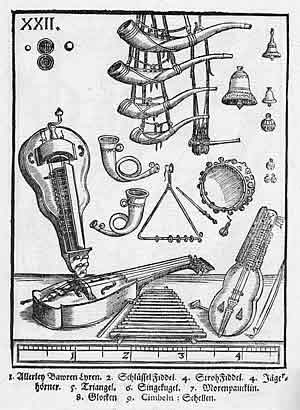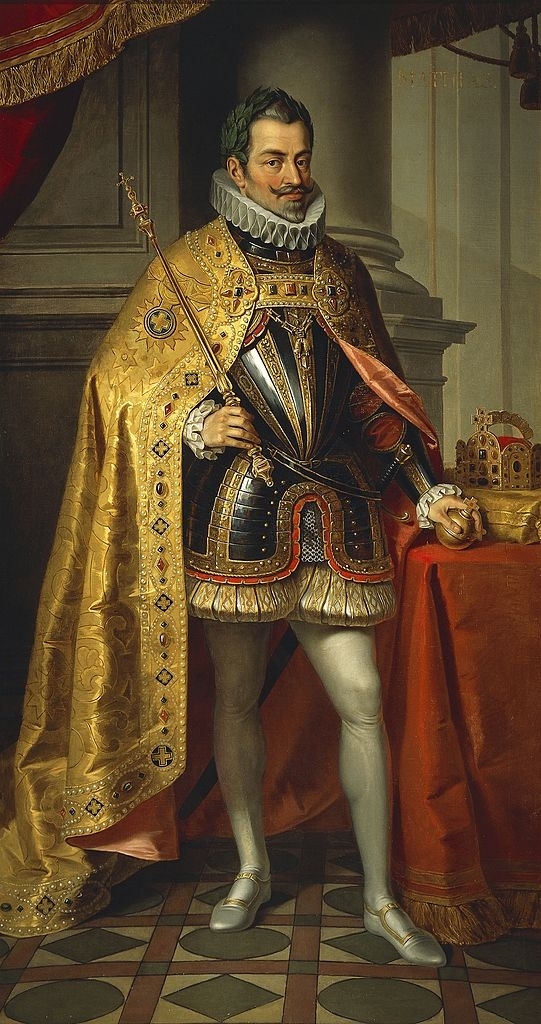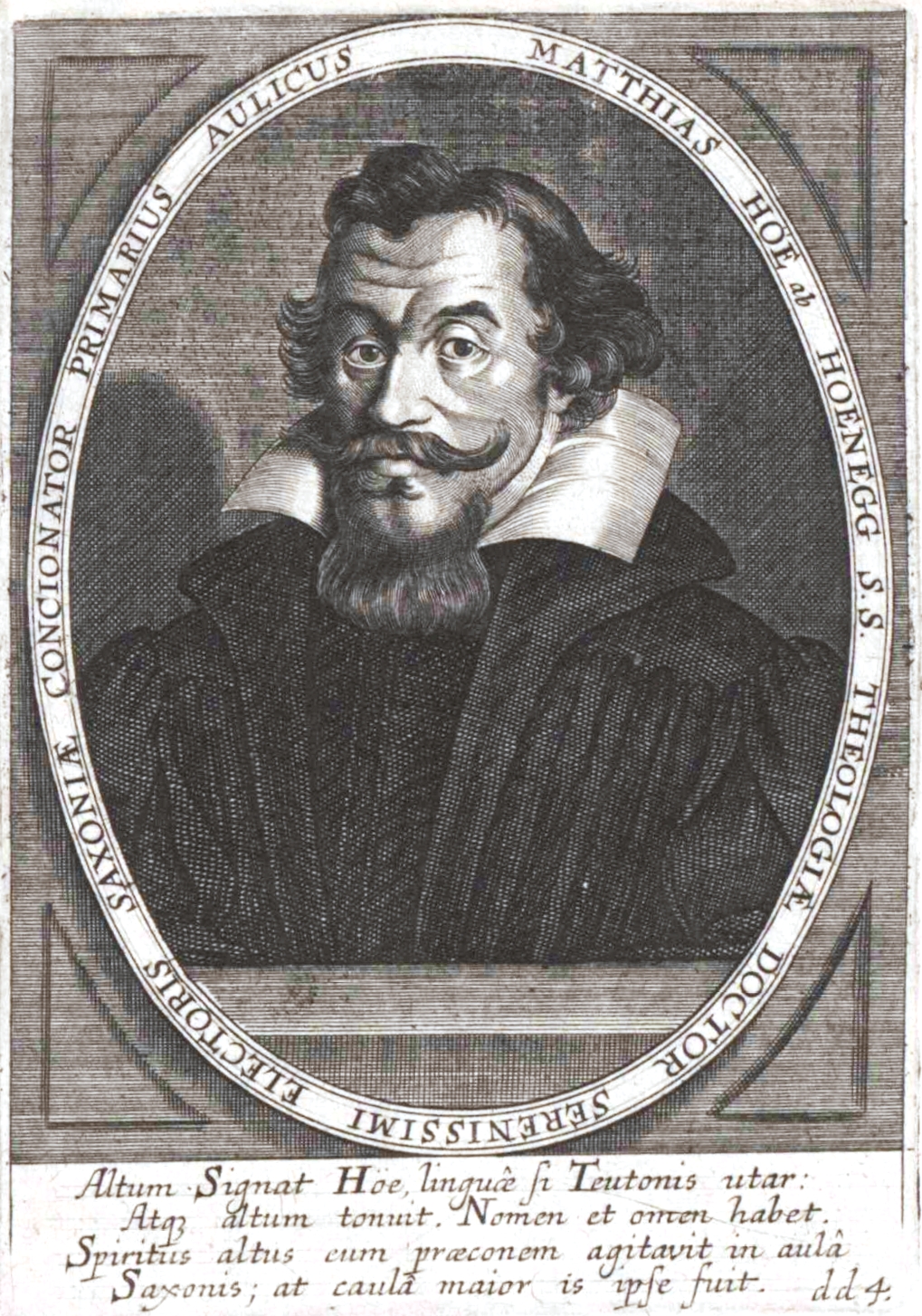|
Michael Praetorius
Michael Praetorius (probably 28 September 1571 – 15 February 1621) was a German composer, organist, and music theorist. He was one of the most versatile composers of his age, being particularly significant in the development of musical forms based on Protestant hymns. Life Praetorius was born Michael Schultze, the youngest son of a Lutheran pastor, in Creuzburg, in present-day Thuringia. After attending school in Torgau and Zerbst, he studied divinity and philosophy at the University of Frankfurt (Oder). He was fluent in a number of languages. After receiving his musical education, from 1587 he served as organist at the Marienkirche in Frankfurt. From 1592/3 he served at the court in Wolfenbüttel, under the employ of Henry Julius, Duke of Brunswick-Lüneburg. He served in the duke's State Orchestra, first as organist and later (from 1604) as '' Kapellmeister'' (court music director). [...More Info...] [...Related Items...] OR: [Wikipedia] [Google] [Baidu] |
Creuzburg
Creuzburg is a town and a former municipality on the Werra river in the Wartburgkreis in Thuringia, Germany. Since December 2019, it is part of the town Amt Creuzburg. Geography Creuzburg is in the area known as the Muschelkalk. Three mountains, ''Wisch, Wallstieg'' and ''Ebenauer Köpfe'' are near the town. Nearby towns include Treffurt and Eisenach. History With a history going back over 1,000 years, Creuzburg is one of the oldest towns in Thuringia. Hill graves in the area of the city demonstrate a settlement beginning at least as early as Carolingian times. The beginnings of the settlement on what became the site of the castle are a result of its position on a major crossroads. The old West-East trade route met at the Werra with the trade route from the south. In the 10th and 11th Centuries, the region was under control of the Fulda Abbey. In 1137, the city came under control of the Thuringian Ludowinger dynasty. Landgrave Ludwig I acquired it in exchange for a portio ... [...More Info...] [...Related Items...] OR: [Wikipedia] [Google] [Baidu] |
Chorale
Chorale is the name of several related musical forms originating in the music genre of the Lutheran chorale: * Hymn tune of a Lutheran hymn (e.g. the melody of " Wachet auf, ruft uns die Stimme"), or a tune in a similar format (e.g. one of the themes in the Finale of Saint-Saëns's Third Symphony) * Such tune with a harmonic accompaniment (e.g. chorale monody, chorales included in '' Schemellis Gesangbuch'') * Such a tune presented in a homophonic or homorhythmic harmonisation, usually four-part harmony (e.g. Bach's four-part chorales, or the chorale included in the second movement of Mahler's Fifth Symphony) * A more complex setting of a hymn(-like) tune (e.g. chorale fantasia form in Bach's '' Schübler Chorales'', or a combination of compositional techniques in César Franck's ') The chorale originated when Martin Luther translated sacred songs into the vernacular language (German), contrary to the established practice of church music near the end of the first qua ... [...More Info...] [...Related Items...] OR: [Wikipedia] [Google] [Baidu] |
Praetorius
Praetorius, Prätorius, Prætorius was the name of several musicians and scholars in Germany. In 16th and 17th century Germany it became a fashion for educated people named " Schulze," "Schultheiß," or " Richter" (which means "judge"), to Latinise their names as "Praetorius," referring to a former official position called "Praetor urbanus." * Anton Praetorius (1560–1613), pastor, fighter against the persecution of witches and against torture * Bartholomaeus Praetorius (c.1590–1623), composer and cornettist * Christoph Praetorius (died 1609), composer, and uncle of Michael * Franz Praetorius (1847–1927), semitist and Hebraist * Hieronymus Praetorius (1560–1629), composer and organist * Ida Praetorius (born 1993), Danish ballerina * Jacob Praetorius (c.1530–1586), composer and organist, and father of Hieronymus * Jacob Praetorius (1586–1651), composer, organist and teacher, and son of Hieronymus * Johannes Praetorius (1537–1616), mathema ... [...More Info...] [...Related Items...] OR: [Wikipedia] [Google] [Baidu] |
Marienkirche, Wolfenbüttel
The Marienkirche is a main church (''Hauptkirche'') in Wolfenbüttel, Lower Saxony, Germany. The official name of the Lutheran church is ''Hauptkirche Beatae Mariae Virginis'' (Main church of the Blessed Virgin Mary). Short common names are ''Hauptkirche BMV'', or simply ''BMV''. It is regarded as the first major Protestant church. It was commissioned by Henry Julius, Duke of Brunswick-Lüneburg. Building began in 1608, directed by ''Baumeister'' Paul Francke. The portals in the north and south are attributed to . :de:Jacob Meyerheine Burials The composer Michael Praetorius, the writer Gottfried Wilhelm Sacer and the architect Paul Francke are buried in the church. The ''Fürstengruft'' below the choir contains the graves of 29 members of the ducal house of the Principality of Brunswick-Wolfenbüttel The Principality of Brunswick-Wolfenbüttel (german: Fürstentum Braunschweig-Wolfenbüttel) was a subdivision of the Duchy of Brunswick-Lüneburg, whose history was characterise ... [...More Info...] [...Related Items...] OR: [Wikipedia] [Google] [Baidu] |
Heinrich Schütz
Heinrich Schütz (; 6 November 1672) was a German early Baroque composer and organist, generally regarded as the most important German composer before Johann Sebastian Bach, as well as one of the most important composers of the 17th century. He is credited with bringing the Italian style to Germany and continuing its evolution from the Renaissance into the Early Baroque. Most of his surviving music was written for the Lutheran church, primarily for the Electoral Chapel in Dresden. He wrote what is traditionally considered the first German opera, '' Dafne'', performed at Torgau in 1627, the music of which has since been lost, along with nearly all of his ceremonial and theatrical scores. Schütz was a prolific composer, with more than 500 surviving works. He is commemorated as a musician in the Calendar of Saints of some North American Lutheran churches on 28 July with Johann Sebastian Bach and George Frideric Handel. Early life Schütz was born in Köstritz, the eldest son ... [...More Info...] [...Related Items...] OR: [Wikipedia] [Google] [Baidu] |
Matthias, Holy Roman Emperor
Matthias (24 February 1557 – 20 March 1619) was Holy Roman Emperor from 1612 to 1619, Archduke of Austria from 1608 to 1619, King of Hungary and Croatia from 1608 to 1618, and King of Bohemia from 1611 to 1617. His personal motto was ''Concordia lumine maior'' ("Unity is stronger than light"). Matthias played a significant role in the familial opposition of the Habsburgs against his brother Emperor Rudolf II. After gaining power, he showed little political initiative of his own. The course of his politics was determined by Cardinal Klesl until his fall in 1618. As a consequence of his failed religious and administrative policies the Bohemian Revolt, the initial theatre of the Thirty Years War set off during the final year of his reign. Biography Family Matthias was born in the Austrian capital of Vienna as the fourth son of Maximilian II, Holy Roman Emperor, and Maria of Spain. His brothers were Rudolf (who became Emperor Rudolf II), Ernest, Maximilian (from 1585 Grand M ... [...More Info...] [...Related Items...] OR: [Wikipedia] [Google] [Baidu] |
Matthias Hoë Von Hoënegg
Matthias Hoë von Hoënegg (24 February 1580, Vienna – 4 March 1645, Dresden) was a German Lutheran pastor. Life Matthias's father was Leonhard Höe von Höenegg, a Lutheran imperial councillor and doctor of law descended from old Austrian nobility. Matthias was born prematurely and so his health was weak during his early years, meaning he only started speaking when he was seven. His father initially had him taught by a private tutor until, once he was almost fully educated, he was allowed to visit Vienna's St Stephan's Stadtschule, where he developed remarkably and began talking to the city's scholars. Due to the imminent capture of Vienna in 1594 by the Ottomans, Matthias, his father and his brother moved to Steyr, where they spent three years and where Matthias attended the local gymnasium. His father then returned to Vienna and recalled Matthias, giving him a chance to attend the University of Vienna, where he initially studied philosophy. On the recommendation of an ... [...More Info...] [...Related Items...] OR: [Wikipedia] [Google] [Baidu] |
Giovanni Gabrieli
Giovanni Gabrieli (c. 1554/1557 – 12 August 1612) was an Italian composer and organist. He was one of the most influential musicians of his time, and represents the culmination of the style of the Venetian School, at the time of the shift from Renaissance to Baroque idioms. Biography Gabrieli was born in Venice. He was one of five children, and his father came from the region of Carnia and went to Venice shortly before Giovanni's birth. While not much is known about Giovanni's early life, he probably studied with his uncle, the composer Andrea Gabrieli, who was employed at St Mark's Basilica from the 1560s until his death in 1585. Giovanni may indeed have been brought up by his uncle, as is implied by the dedication to his 1587 book of concerti, in which he described himself as "little less than a son" to his uncle.Bryant, Grove online Giovanni also went to Munich to study with the renowned Orlando de Lassus at the court of Duke Albert V; most likely he stayed there un ... [...More Info...] [...Related Items...] OR: [Wikipedia] [Google] [Baidu] |
Chorale Concerto
In music, a chorale concerto is a short sacred composition for one or more voices and instruments, principally from the very early German Baroque era. Most examples of the genre were composed between 1600 and 1650. Description This use of the word '' concerto'' differs considerably from the more modern, and considerably more common usage: in the early Baroque the word meant vocal music accompanied by instruments, specifically in concertato style. The concertato style was brought north across the Alps by composers such as Hans Leo Hassler and Heinrich Schütz, who studied in Venice with the originators of the style, the Venetian School composers including Giovanni Gabrieli. Hassler, Schütz and others then applied their newly learned techniques to the German chorale to create a form roughly equivalent in expression and purpose to the motet which in the preceding Renaissance era was used in Roman Catholic context. The Protestant Reformation made necessary the development of ... [...More Info...] [...Related Items...] OR: [Wikipedia] [Google] [Baidu] |
Venetian School (music)
In music history, the Venetian School was the body and work of composers working in Venice from about 1550 to around 1610, many working in the Venetian polychoral style. The Venetian polychoral compositions of the late sixteenth century were among the most famous musical works in Europe, and their influence on musical practice in other countries was enormous. The innovations introduced by the Venetian school, along with the contemporary development of monody and opera in Florence, together define the end of the musical Renaissance and the beginning of the musical Baroque. History Several major factors came together to create the Venetian School. The first was political: after the death of Pope Leo X in 1521 and the Sack of Rome in 1527, the long dominant musical establishment in Rome was eclipsed: many musicians either moved elsewhere or chose not to go to Rome, and Venice was one of several places to have an environment conducive to creativity.Gangwere, p. 246. Another ... [...More Info...] [...Related Items...] OR: [Wikipedia] [Google] [Baidu] |
Venetian Polychoral Style
The Venetian polychoral style was a type of music of the late Renaissance and early Baroque eras which involved spatially separate choirs singing in alternation. It represented a major stylistic shift from the prevailing polyphonic writing of the middle Renaissance, and was one of the major stylistic developments which led directly to the formation of what is now known as the Baroque style. A commonly encountered term for the separated choirs is ''chori spezzati''—literally, "broken choruses" as they were called, added the element of spatial contrast to Venetian music. These included the echo device, so important in the entire baroque tradition; the alternation of two contrasting bodies of sound, such as chorus against chorus, single line versus a full choir, solo voice opposing full choir, instruments pitted against voices and contrasting instrumental groups; the alternation of high and low voices; soft level of sound alternated with a loud one; the fragmentary versus the ... [...More Info...] [...Related Items...] OR: [Wikipedia] [Google] [Baidu] |
Dresden
Dresden (, ; Upper Saxon: ''Dräsdn''; wen, label=Upper Sorbian, Drježdźany) is the capital city of the German state of Saxony and its second most populous city, after Leipzig. It is the 12th most populous city of Germany, the fourth largest by area (after Berlin, Hamburg and Cologne), and the third most populous city in the area of former East Germany, after Berlin and Leipzig. Dresden's urban area comprises the towns of Freital, Pirna, Radebeul, Meissen, Coswig, Radeberg and Heidenau and has around 790,000 inhabitants. The Dresden metropolitan area has approximately 1.34 million inhabitants. Dresden is the second largest city on the River Elbe after Hamburg. Most of the city's population lives in the Elbe Valley, but a large, albeit very sparsely populated area of the city east of the Elbe lies in the West Lusatian Hill Country and Uplands (the westernmost part of the Sudetes) and thus in Lusatia. Many boroughs west of the Elbe lie in the foreland of th ... [...More Info...] [...Related Items...] OR: [Wikipedia] [Google] [Baidu] |








